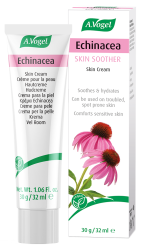An introduction to the causes of acne
Acne normally occurs when the pores of your skin become blocked by dirt, oil, dead skin or bacteria. These obstructions can cause the formation of pimples, leading to an outbreak of acne. Your pores, or to be more specific, your follicles, become susceptible to being clogged when the sebaceous glands start to produce too much sebum oil, which then bonds with dead skin cells, dirt or bacteria.
Genetics
Genetics can be responsible for predisposing you to a variety of different conditions, from sensitive skin to heart disease. Acne is not contagious but there is a possibility that it can be associated with your genes.
In a recent study by the Twin Research and Genetic Epidemiology Unit, St Thomas' Hospital, London, revealed that you are four times more likely to experience acne if you have a first degree relative with the condition.1 This can increase the likelihood of you developing the condition; however it is no guarantee that you will get acne and should not be treated as some sort of sentence.
1http://www.ncbi.nlm.nih.gov/pubmed/12485434
Weak immune system
Your immune system is incredibly important when it comes to keeping your body safe and protected from pathogens, germs and bacteria. If your immune system is under stress, it can trigger an inflammatory reaction which can then exaggerate your acne symptoms.
For example, when propionibacterium, the bacteria responsible for acne, starts to starve, it will release chemicals that agitate the immune system, prompting an inflammatory response.2
However, if your immune system is fatigued or over-stimulated, it might release too many inflammatory chemicals that can start to target healthy skin cells as well as the bacteria, leading to an outbreak of acne.
2http://www.facingacne.com/boost-immune-system-fight-acne/
Sluggish liver function
The human body relies on the liver to cleanse the bloodstream of impurities, and to pass these waste products on to the intestines, where they will be excreted from the body.
However, if your liver function is sluggish, then it will not be able to detoxify your body successfully, and these impurities will linger in your system, including male hormones that may stimulate the production of sebum oil.
Typically, other organs, such as the kidneys or skin, have to take over for the liver and these toxins often end up being expelled through the epidermis. This can upset your skin cells and subsequently irritate the immune system, leading to an outbreak of acne.
Poor digestion
Your digestion is another factor to consider when discussing the causes of acne.
Poor bowel function can often accompany a sluggish liver but it can also be caused by aspects of your lifestyle, such as your diet and your stress levels. If you are not moving your bowels regularly, then you will not be expelling all the waste products from your food, which can then cause toxins to linger in your system and eventually provoke a reaction from your immune system and skin cells.
Insulin
Your pancreas can have a real impact on your acne symptoms. This is because the pancreas is involved with the production of insulin, the secretion of hormones and regulating your blood sugar levels.
If your liver detects that your blood sugar levels are rising too much, then insulin will be released to convey any excess blood sugar into the cells of your body, where it can be converted in energy.
However, this process can stimulate your hormones and the more your pancreas is required to regulate your blood sugar levels, the more your body will gradually build up an immunity to insulin.
This means that your pancreas will have to flood your body with even more insulin in order to weaken your resistance and this will cause the release of even more hormones, eventually stimulating an outbreak of acne.
Poor nutrition
There is no official scientific proof that can validate the relationship between diet and acne, however it is possible to suggest that some food products, such a milk, caffeine, alcohol or foods high in histamine, might make your symptoms worse.
A diet high in refined sugars can cause insulin spikes, which then trigger the secretion of certain male hormones that can increase your production of sebum oil. Milk also contains androgens, a male hormone that precedes testosterone, which can stimulate the production of sebum as well.3
Foodstuffs that are rich in histamine such as caffeine, alcohol or chocolate might irritate the sebaceous glands as they generally place stress on the immune system and enable the release of adrenalin which can cause an increase in the levels of sebum oil on your skin.
3http://www.acne.org/diet.html
Stress
The connection between stress and acne is not well realised by scientists but there is evidence to substantiate its existence. Dermatologist Lisa A. Garner recognises that the cells that produce sebum oil are sensitive to stress hormones.
If you are feeling stressed, then the production of sebum becomes “upregulated”, leading to an increase in production, exacerbating acne symptoms.4
However, more research in this field is still required. It is also possible that stress can over-stimulate the immune system, inspiring the release of inflammatory chemicals that may upset sensitive skin and trigger an outbreak of acne.
4http://www.webmd.com/skin-problems-and-treatments/acne/features/stress-and-acne?page=1
Puberty
Ah Puberty, that magical time in your life when your body feels the need to drag you on a physical and emotional rollercoaster ride from hell.
The last thing that a self-conscious teenager really needs, in addition to a squeaky voice or the newly discovered joys of menstruation, is an eruption of spots all over their face.
Unfortunately, the hormonal changes that you experience during puberty have a lot to answer for, and your teenage outbursts of acne are definitely amongst them.
The production of the male and female hormones, testosterone and oestrogen respectively, can stimulate your sebaceous glands into producing more sebum oil, which can block your pores and cause your skin to become inflamed and marked by pimples.
Pregnancy
The hormonal changes during pregnancy can trigger the sebaceous glands into producing more oil, leading to an outbreak of acne, especially if you have been susceptible to the skin complaint in the past. There is no telling how long this episode of acne will last – as dermatologist Andrea Cambio has remarked, “It may come and go, or last the whole pregnancy.”5
5http://www.babycenter.com/0_acne-during-pregnancy_1456557.bc
Polycystic Ovary Syndrome
PCOS is a hormonal condition that can affect up to 20% of women.6 It occurs when high levels of testosterone overwhelm the female hormone oestrogen. This hormonal shift can influence the sebaceous glands, again causing an outbreak of pimples and blackheads on the surface of the skin. Insulin resistance can also play a role in PCOS, placing you at risk of experiencing insulin spikes, which can increase your levels of male hormones.
6http://www.nhs.uk/Conditions/Polycystic-ovarian-syndrome/Pages/Introduction.aspx
Medication
Some medications can contribute to an outburst of acne, with drugs such as steroids, lithium and iodides irritating your sebaceous glands. Medicines that can influence your hormone levels may also be responsible for an episode, like some forms of HRT or the progesterone only contraceptive pill.
Cosmetics
There are a variety of cosmetics that can exacerbate the symptoms of acne. Avoid products that boast high levels of oil or coco butter as well as cosmetics that contain harsh chemicals or fragrances which might irritate your sensitive skin.
Plying on layers of make-up is not a good idea either if you suffer from acne, although it might be a tempting solution to concealing your pimples. However, so forms of make-up contain oils or comedogenic which can also be attributed to acne outbreaks.





 Looking for a sensitive skin care solution that provides moisture and hydration whilst soothing and calming troubled spot prone skin?
Looking for a sensitive skin care solution that provides moisture and hydration whilst soothing and calming troubled spot prone skin?

